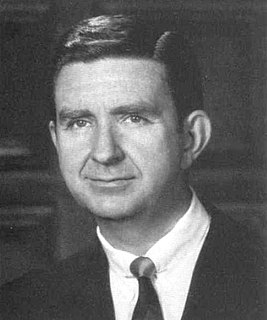A Quote by John Philip Newell
Eriugena and other Celtic teachers speak of Christ as our memory, as the one who leads us to our deepest identity, as the one who remembers the song of our beginnings?.
Related Quotes
The aggressive incoherence of our common surroundings can be described as entropy made visible. The way we have disposed things on the landscape leads us in the direction of disorder and death. They are categorically evil. These dispositions are destroying our only home-planet and other organisms that share it. They defeat our need to care about where we are and the things in place there. They prompt us to feel that civilization is not worth carrying on. They rob us of our identity and our will to live. These things are not about personal taste or style.
The sun shines not on us but in us. The rivers flow not past, but through us. Thrilling, tingling, vibrating every fiber and cell of the substance of our bodies, making them glide and sing. The trees wave and the flowers bloom in our bodies as well as our souls, and every bird song, wind song, and tremendous storm song of the rocks in the heart of the mountains is our song, our very own, and sings our love.
[Grace] is given not to make us something other than ourselves but to make us radically ourselves. Grace is given not to implant in us a foreign wisdom but to make us alive to the wisdom that was born with us in our mother?s womb. Grace is given not to lead us into another identity but to reconnect us to the beauty of our deepest identity. And grace is given not that we might find some exterior source of strength but that we might be established again in the deep inner security of our being and in learning to lose ourselves in love for one another to truly find ourselves.
Heroes are necessary in order to enable the citizens to find their own ideals, courage and wisdom in the society. The hero carries our hopes, our aspirations, our ideals, our beliefs. In the deepest sense the hero is created by us; he or she is born collectively as our own myth. This is what makes heroism so important: it reflects our own sense of identity and from this our own heroism is molded.
Music at its best...is the grand archeology into and transfiguration of our guttural cry, the great human effort to grasp in time our deepest passions and yearnings as prisoners of time. Profound music leads us--beyond language--to the dark roots of our scream and the celestial heights of our silence.
Christ became our Brother in order to help us. Through him our brother has become Christ for us in the power and authority of the commission Christ has given him. Our brother stands before us the sign of the truth and the grace of God. He has been given to us to help us. He hears the confession of our sins in Christ's stead and he forgives our sins in Christ's name. He keeps the secret of our confession as God keeps it. When I go to my brother to confess, I am going to God.
Not only our eternal salvation depends upon our willingness and capacity to forgive wrongs committed against us. Our joy and satisfaction in this life, and our true freedom, depend upon our doing so. When Christ bade us turn the other cheek, walk the second mile, give our cloak to him who takes our coat, was it to be chiefly out of consideration for the bully, the brute, the thief? Or was it to relieve the one aggrieved of the destructive burden that resentment and anger lay upon us?






































